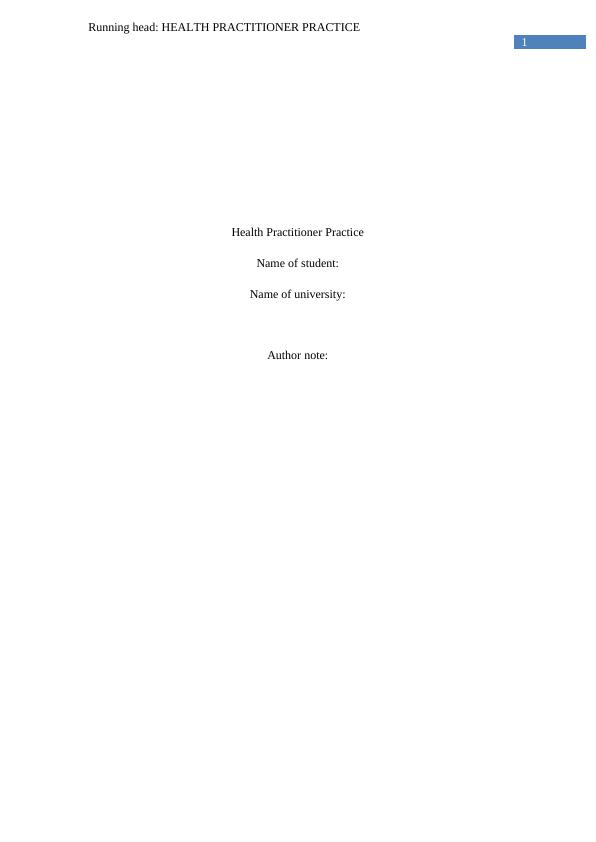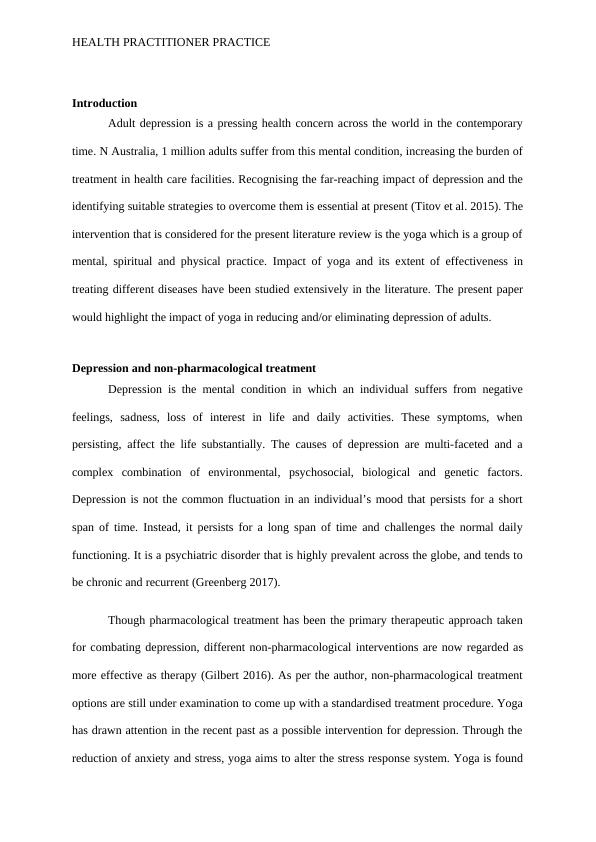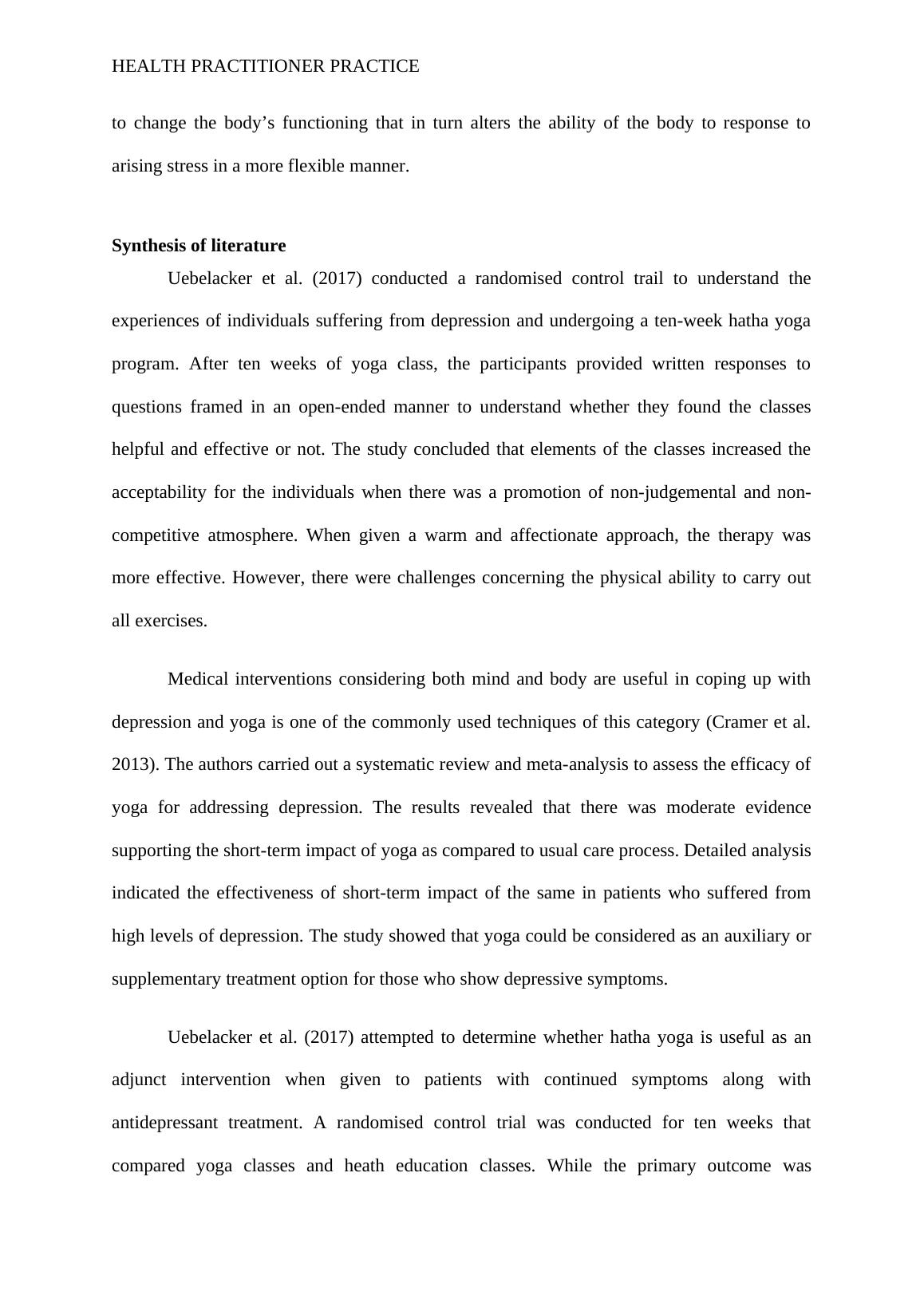Paper on Impact of Yoga in Reducing Depression of Adult
Added on 2020-03-28
9 Pages2282 Words34 Views
End of preview
Want to access all the pages? Upload your documents or become a member.
Depression: Evidence-Based Interventions and Treatment Options
|13
|3490
|87
Effectiveness of Cognitive Behavioral Therapy in Treating Depression in Older Patients with Dementia
|16
|3671
|490
Is the use of yoga and meditation therapy effective in improving one's long term well being?
|7
|1840
|189
Critical Appraisal of a Study on the Effects of Yoga on Depression and Anxiety in Women
|8
|2164
|387
Critical Appraisal of Evidence on Yoga for Managing PTSD Symptoms
|9
|1947
|228
The Use of Antidepressants in Dementia in the Elderly in Nursing Homes
|52
|13064
|74



